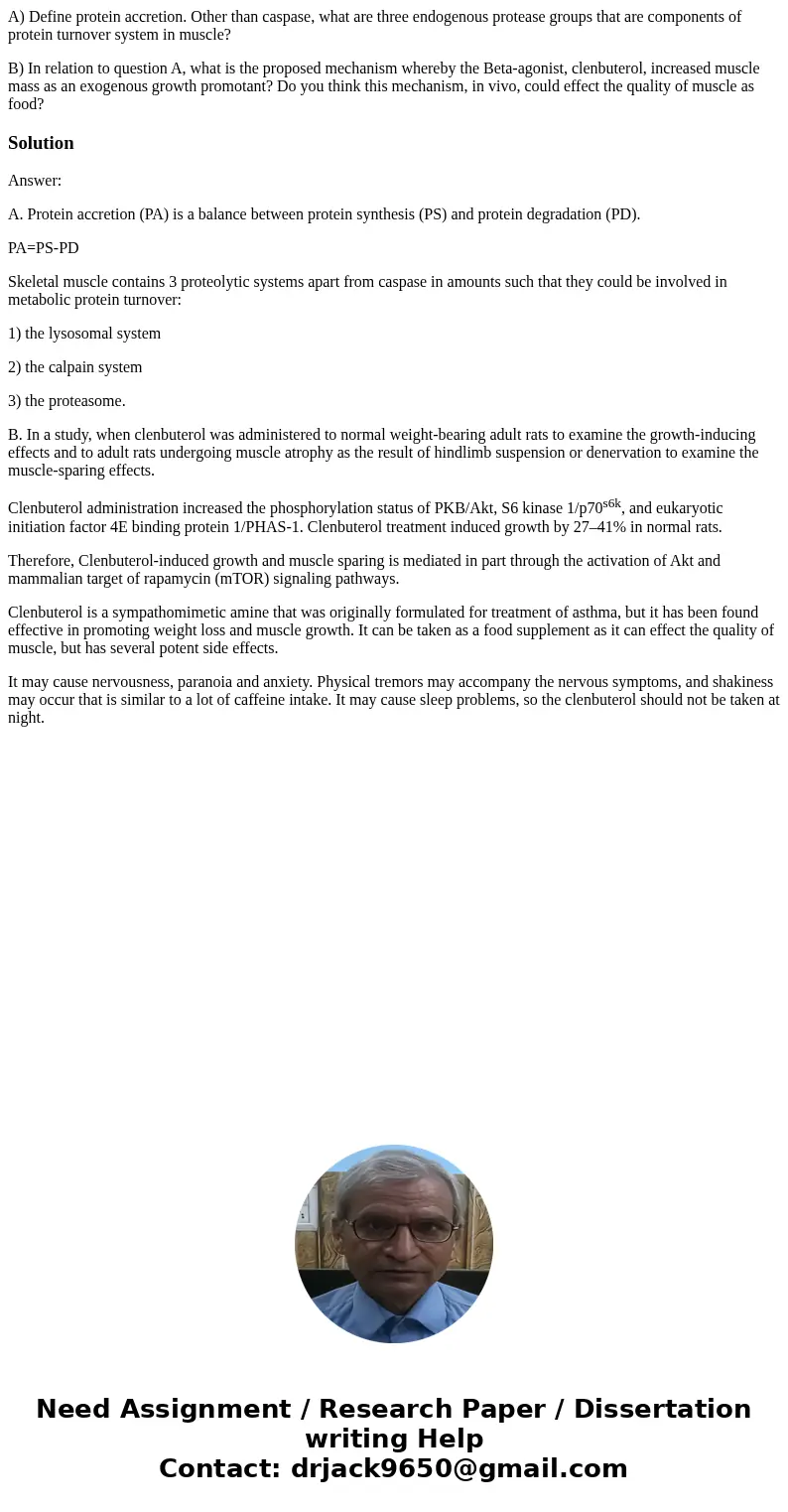A Define protein accretion Other than caspase what are three
A) Define protein accretion. Other than caspase, what are three endogenous protease groups that are components of protein turnover system in muscle?
B) In relation to question A, what is the proposed mechanism whereby the Beta-agonist, clenbuterol, increased muscle mass as an exogenous growth promotant? Do you think this mechanism, in vivo, could effect the quality of muscle as food?
Solution
Answer:
A. Protein accretion (PA) is a balance between protein synthesis (PS) and protein degradation (PD).
PA=PS-PD
Skeletal muscle contains 3 proteolytic systems apart from caspase in amounts such that they could be involved in metabolic protein turnover:
1) the lysosomal system
2) the calpain system
3) the proteasome.
B. In a study, when clenbuterol was administered to normal weight-bearing adult rats to examine the growth-inducing effects and to adult rats undergoing muscle atrophy as the result of hindlimb suspension or denervation to examine the muscle-sparing effects.
Clenbuterol administration increased the phosphorylation status of PKB/Akt, S6 kinase 1/p70s6k, and eukaryotic initiation factor 4E binding protein 1/PHAS-1. Clenbuterol treatment induced growth by 27–41% in normal rats.
Therefore, Clenbuterol-induced growth and muscle sparing is mediated in part through the activation of Akt and mammalian target of rapamycin (mTOR) signaling pathways.
Clenbuterol is a sympathomimetic amine that was originally formulated for treatment of asthma, but it has been found effective in promoting weight loss and muscle growth. It can be taken as a food supplement as it can effect the quality of muscle, but has several potent side effects.
It may cause nervousness, paranoia and anxiety. Physical tremors may accompany the nervous symptoms, and shakiness may occur that is similar to a lot of caffeine intake. It may cause sleep problems, so the clenbuterol should not be taken at night.

 Homework Sourse
Homework Sourse